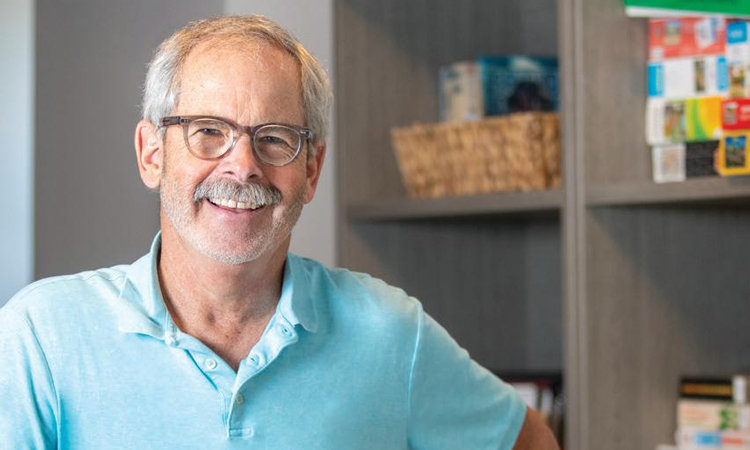Mark Redmond’s “What’s Credit & Other Stories”
Courtesy of Villanova University
Mark Redmond shared deeply emotional stories at his show “What’s Credit & Other Stories.”
October 5, 2022
On Thursday Sept. 29, 2022, Mark Redmond ’79, returned to Villanova to present “What’s Credit & Other Stories” in the Smith Performance Lab. Redmond has lived an incredible life full of giving and brimming with purpose and love. His experiences have given him a unique insight into human nature, suffering, the beauty found in each life and of course, moving stories that he has shared both nationally and internationally.
In 2013 on the Moth Radio Hour, Redmond first presented his stories on a large scale. When he first contacted the program, he did not expect anything to come from it. Since then, he has shared his stories in publications including The New York Times, The Washington Post and others. Redmond’s one-man show was chosen from hundreds of applicants to be part of the 2019 United Solo Theatre Festival on Broadway, titled “So Shines a Good Deed.” Redmond’s life is full of moments he has never forgotten, and his memory, attention to detail and the story’s contents bring the audience on a journey, which pulls one along to see the highs and lows of working to protect and uplift the most vulnerable. Redmond’s storytelling abilities are credited to what he witnessed at gatherings of his large Irish-Catholic family growing up. The time spent watching his father command a room with just his voice and a story taught him to do the same.
At the start of many stories, the audience is presented with a sense of hopelessness. As the story progresses, some hope begins to creep in, until finally the audience is given reason to believe that the world can change for the better. The source of this belief comes from the people of the stories. The people are good people, who do beautiful things. Redmond’s stories focus on people; they are most compelling, and the most promising source of hope.
Redmond’s passion for doing meaningful work in service of others is a life-long one. While attending grad school, he was working at Catholic Charities, and he was approached by a priest, Father Bill, who was ministering to homeless men with AIDS and said he wanted to open a residence for homeless men with AIDS in a convent at St. Veronica’s. Redmond believed in the project and wrote a proposal to present to his manager. He was very persistent in being heard but was consistently ignored by his manager, who was a Monsignor. Months later, while watching television, he watched as the Monsignor announced that the residence would be opened. Redmond was furious for himself and those he had worked with. Years later, he was on a retreat and saw Father Bill. In his one-on-one session with the retreat leader, Redmond spoke about Father Bill and then told the story of the residence he had proposed and expressed his unresolved anger. The retreat leader asked if the residence had opened and if it had fulfilled the intended purpose, when Redmond responded yes, he questioned why he was angry. After explaining that he did not receive any of the credit for the work, the leader looked at him and asked plainly, “what’s credit?”
One story addressed the attitudes people often have towards homeless individuals. A visitor to Spectrum Youth and Family Services was speaking to the young people there who are homeless, in the juvenile justice system or in other ways vulnerable and in need of resources. The visitor asked the group if they could turn the clock back 10 years, what could they do differently. Each teen spoke about their lives, reflecting that 10 years ago, most of them were children, often in abusive homes, sometimes with parents with addiction, and they were powerless, there was nothing they could have done differently. One young woman, after many individuals had told their stories, spoke up, saying that it is easy for people who observe the homeless to judge, to believe that they hold the blame for their situation. But these kids are victims, and though it is more difficult to admit that, it is important to find compassion rather than judgment.
All of the audience members were moved to tears as the deeply personal stories explore all of the beauty which can come from immense suffering and tragedy. Redmond is a catalyst for change and his stories compel others to be the same. He believes people want to do good, are generous and desire to give of themselves for others, they just don’t know how. His stories inspire those listening to seek ways to do good and believe that it can make a difference.












